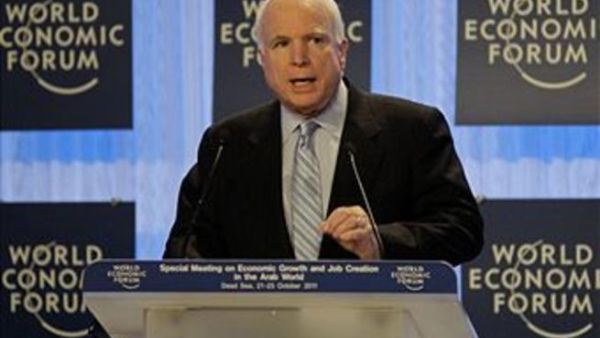The world's four-year economic crisis has left societies battered and widened the gap between the haves and have-nots, global financial leaders conceded yesterday - with one suggesting that Western-style capitalism itself may be endangered.
As Europe struggles with its debt crisis and the global economic outlook remains gloomy at best, there’s a sense at the heavily guarded World Economic Forum that free markets are on trial.
Many at the elite economic gathering in Davos in the Swiss Alps accept that more must be done to convince critics that Western capitalism has a future and that it can learn from its massive failures. For David Rubenstein, co-founder and managing director of asset management firm Carlyle Group, leaders must work fast to overcome the current crisis or else different models of capitalism, such as the form practiced in China, may win the day.
“As a result of this recession, that’s lasted longer than anyone predicted and will probably go on for a number of more years... we’re going to have a lot of economic disparities,” Rubenstein said. “We’ve got to work through these problems. If we don’t do it in three or four years... the game will be over for the type of capitalism that many of us have lived through and thought was the best type.”
About 2,600 of the world’s most influential people are in Davos amid increasing fears about the global economy and social unrest due to rising inequality. Speakers made numerous references to the need to innovate, the need to consult with employees and the realisation that power in the world is shifting from the West to the East.
Business leaders insisted they were learning from the mistakes that dragged the world into its deepest economic recession since the World War II. Many outside the conference centre disagree, after years of crisis in which hundreds of millions have lost their jobs as top executives reap huge paydays.
Protesters sent aloft red weather balloons carrying a protest banner. The activists were from the Occupy WEF movement, a small group camping out in igloos at Davos. Experts said protests must be expected after the excesses of the last decade. “When you have a financial sector which is a casino, that’s putting at risk taxpayers’ money, you have a reaction,” said Guillermo Ortiz, a former governor of the Bank of Mexico.








